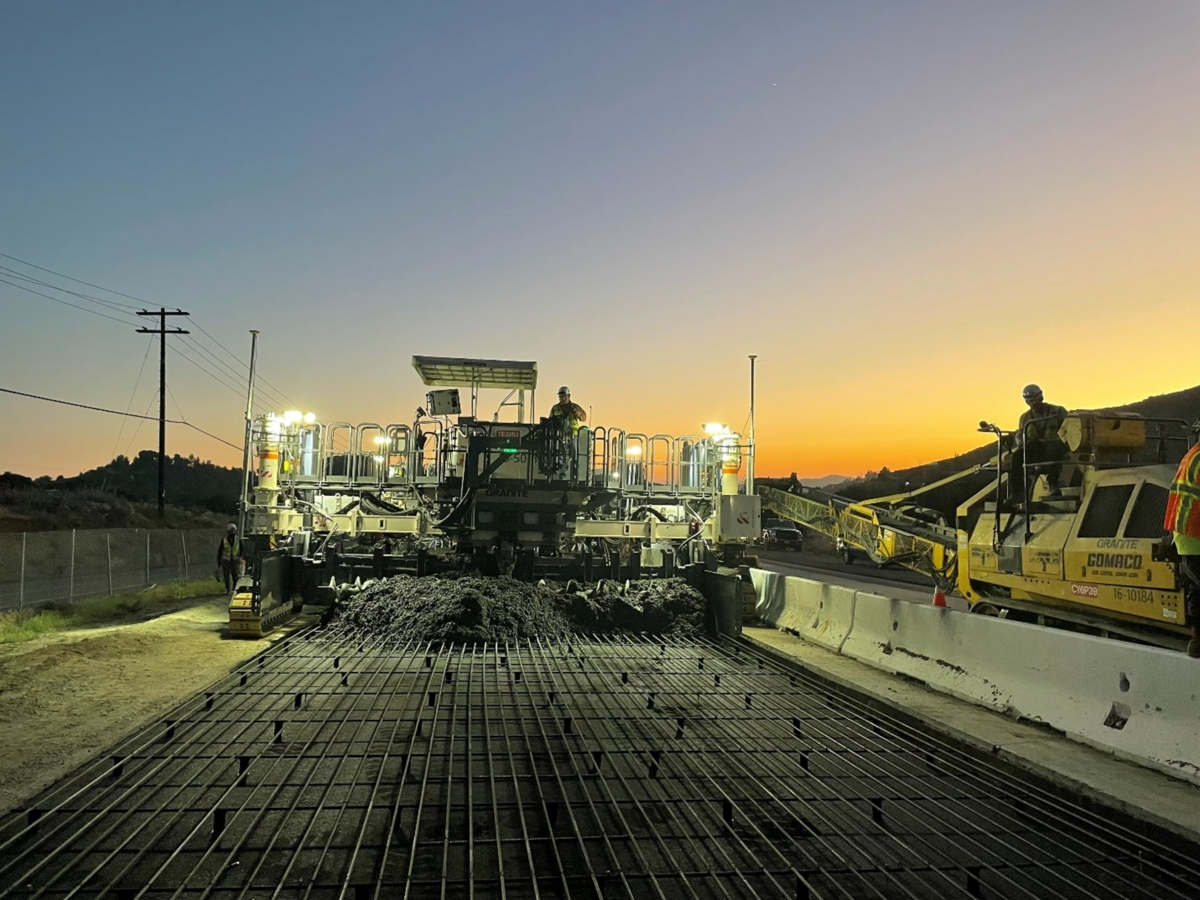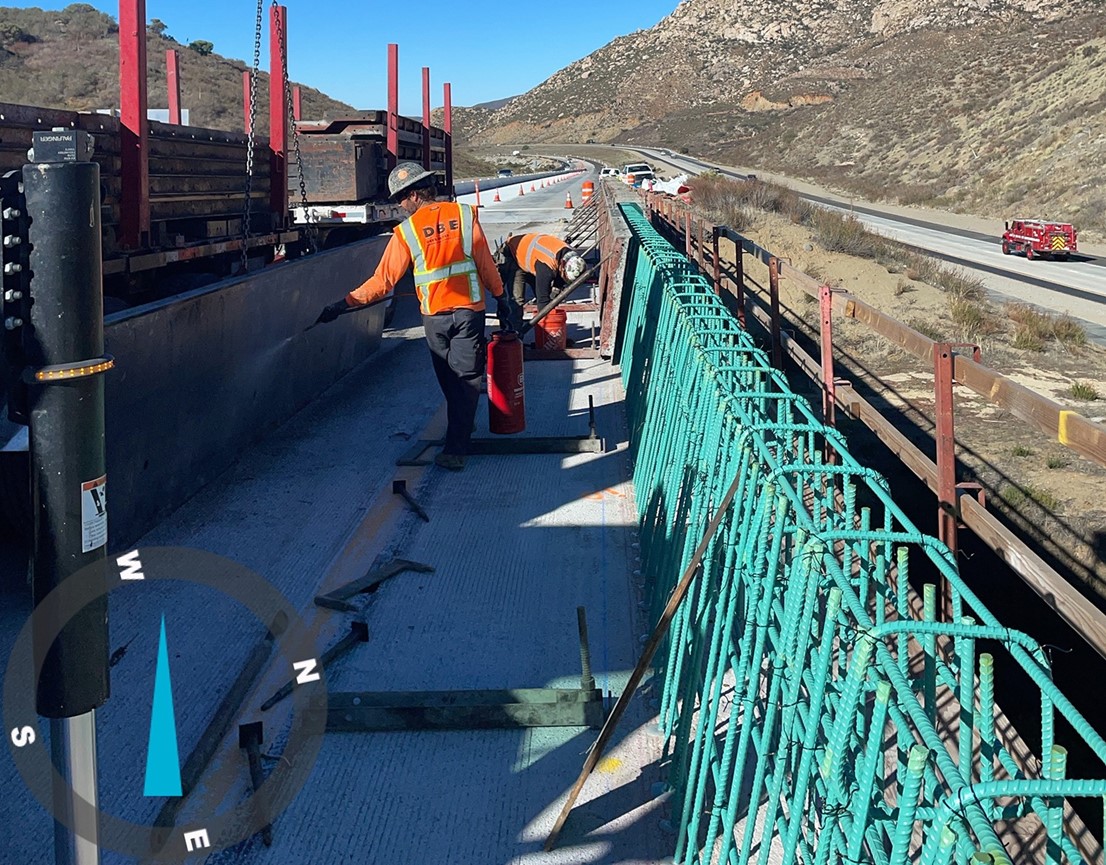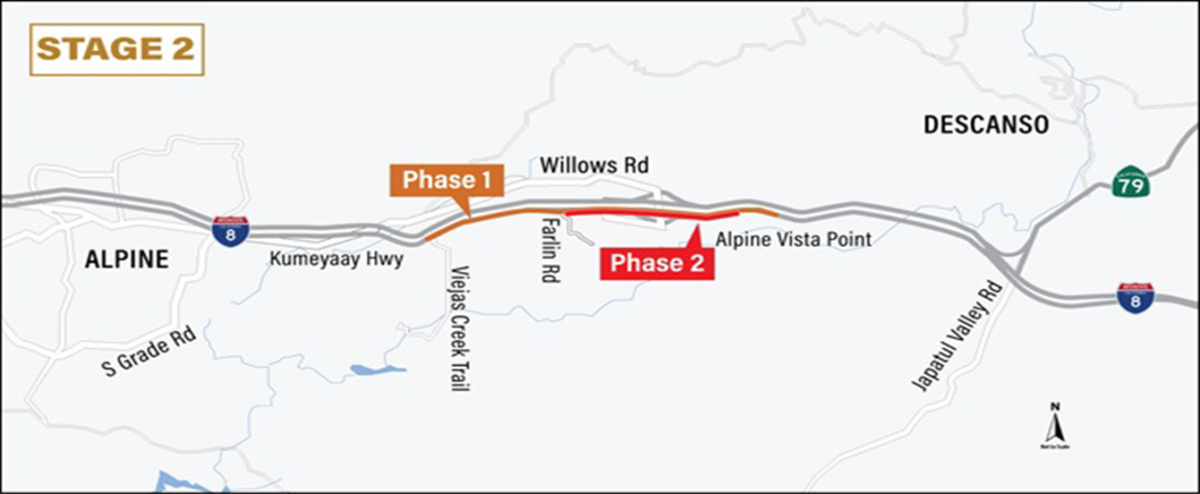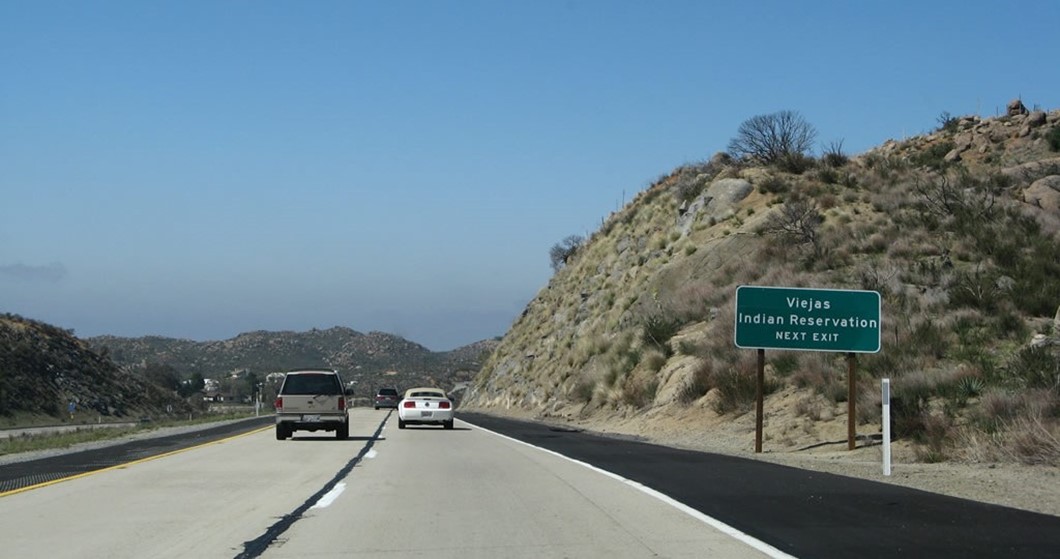In San Diego County’s Cleveland National Forest, between Viejas Creek in the mountain town of Alpine and the Pine Valley Bridge, Interstate 8 is undergoing pavement replacement work in the eastbound lanes, with the project design by Caltrans, led by Project Manager Abdul Malikyar.
More than 39,000 cubic yards of concrete are going into the Continuously Reinforced Concrete Pavement (CRCP) that is being placed in the No. 2 and 3 lanes and the outside shoulder. The No. 1 lane will be improved through individual slab replacement.
The new CRCP that’s being placed will provide a superior, long-lasting roadway, which will reduce maintenance and reconstruction efforts in the future. CRCP delivers a continuous, smooth-riding surface capable of withstanding the heaviest traffic loads and the most adverse environmental conditions, with a life span of up to 70 years, far exceeding virtually all other road surfaces.
Lifecycle Cost Analysis reinforced CRCP as the best pavement choice as well. An optimal sustainable pavement choice, CRCP minimizes any future required maintenance, which means less impacts on the traveling public and less exposure for highway workers.
Granite Construction is the prime contractor on the project, and, as a prerequisite for this remote work, they erected a concrete batch plant adjacent to the SR-79/Japatul Valley Road Park & Ride.
Despite its rural, mountainous route, this 10-mile stretch of I-8 carries more than 100,000 vehicles per day, as it serves as the primary east-west passage between San Diego and Phoenix. Portions of the roadway will be reduced to one lane during the CRCP work, which will take place behind concrete barriers.
Granite and the Caltrans Team are dealing with some challenges typical with mountain road work – elevations up to 4,000 feet, snow and rain, and the subsequent weather delays. A somewhat unique challenge is the amount of water that flows under the structural section, which results in the subgrade becoming flooded and very saturated.
The completed work in Stages 1 & 2 included improvements on the Sweetwater Creek Bridge, the Japatul Valley Bridge, and the Horsethief Bridge. Individual slab replacement took place in the highlighted areas in the map, below, and 1,000 feet of CRCP was placed on each side of the above-named bridges.
To prepare for the new concrete pavement, the existing structural section of the roadway was demolished and removed down to the subgrade, which was then compacted to 95% relative compaction.
The materials removed – concrete, aggregate base/subbase – are being recycled and used as part of the base material for the new lane pavement.
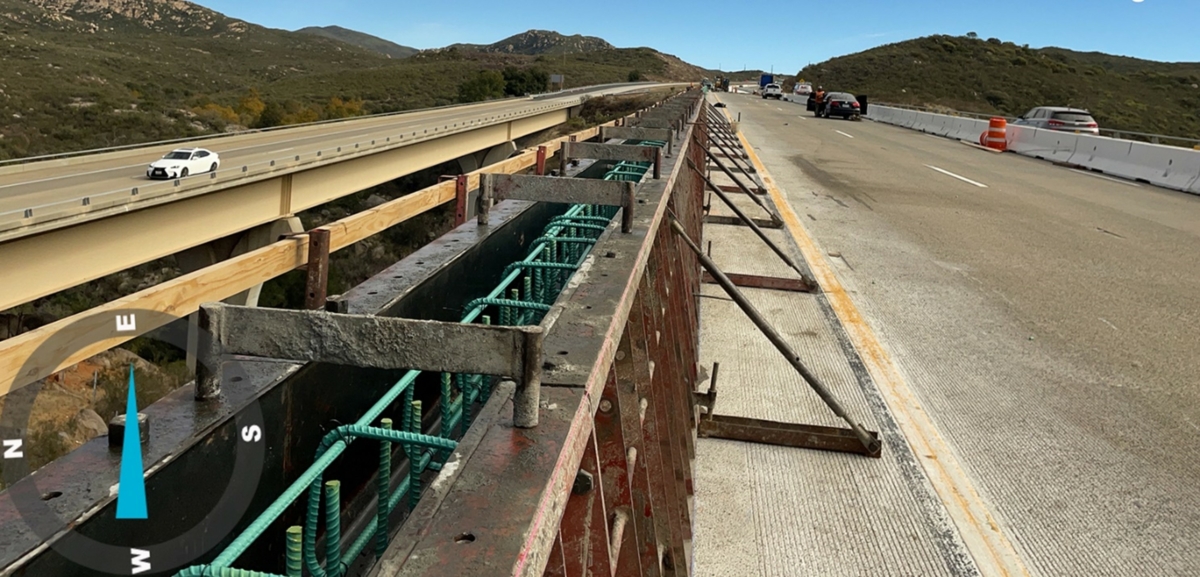
To improve the safety of the roadway, taller and stronger bridge rail upgrades were added to the project.
Work on Stage 3 is now in full swing, with CRCP installation on the number two and three lanes. Rehabilitation work on the Las Blancas Bridge and the Pine Valley Bridge is also underway.
Despite its rural, mountainous route, this 10-mile stretch of I-8 carries more than 100,000 vehicles per day, as it serves as the primary east-west passage between San Diego and Phoenix. Portions of the roadway will be reduced to one lane during the CRCP work, which will take place behind concrete barriers.
Granite and the Caltrans Team are dealing with some challenges typical with mountain road work – elevations up to 4,000 feet, snow and rain, and the subsequent weather delays. A somewhat unique challenge is the amount of water that flows under the structural section, which results in the subgrade becoming flooded and very saturated.
The completed work in Stages 1 & 2 included improvements on the Sweetwater Creek Bridge, the Japatul Valley Bridge, and the Horsethief Bridge. Individual slab replacement took place in the highlighted areas in the map, below, and 1,000 feet of CRCP was placed on each side of the above-named bridges.
To prepare for the new concrete pavement, the existing structural section of the roadway was demolished and removed down to the subgrade, which was then compacted to 95% relative compaction.
The materials removed – concrete, aggregate base/subbase – are being recycled and used as part of the base material for the new lane pavement.
Stage 4 will feature new CRCP placement, along with finishing the rehab work on Horsethief Bridge and Sweetwater Creek Bridge. Final touch-up work will complete the project next year in Stage 5.
Thanks and a tip of the hard hat to Caltrans District 11 Public Information Officer Hayden Manning and Caltrans Project Manager Abdul Malikyar for their contributions to this story.



